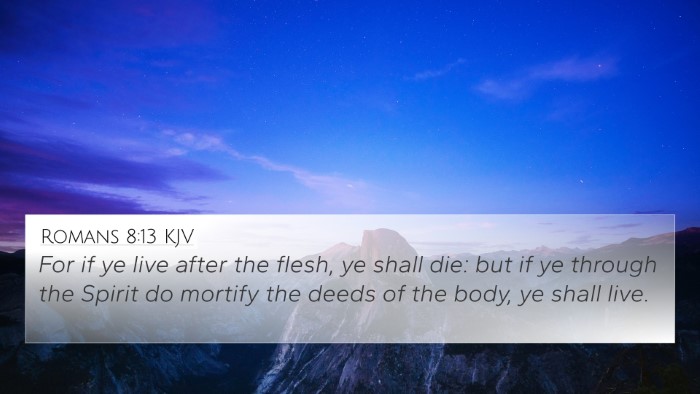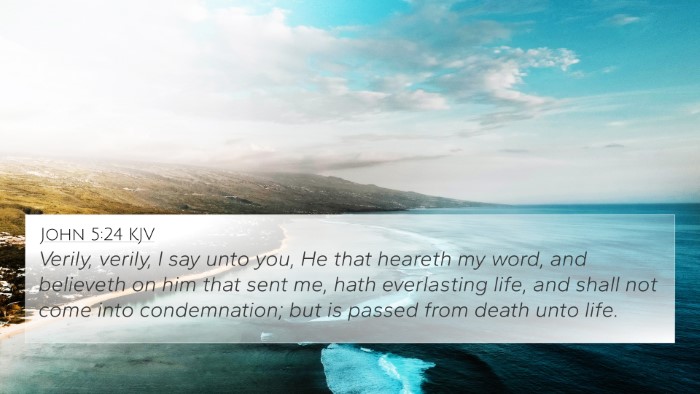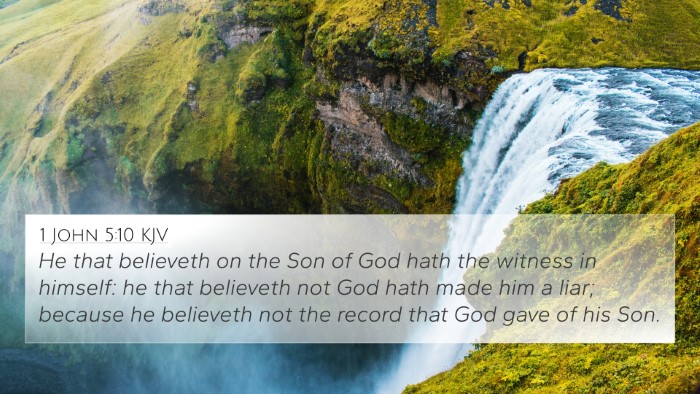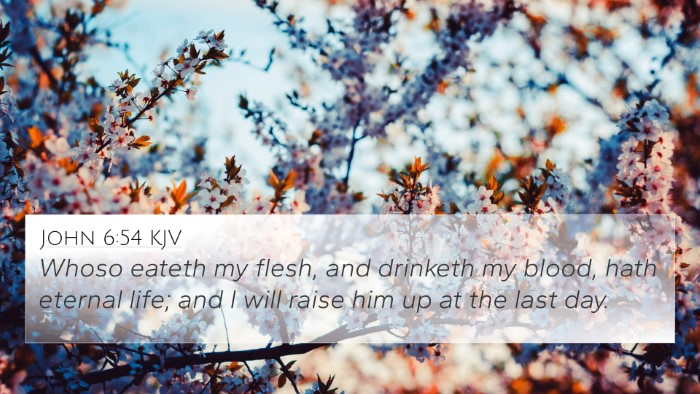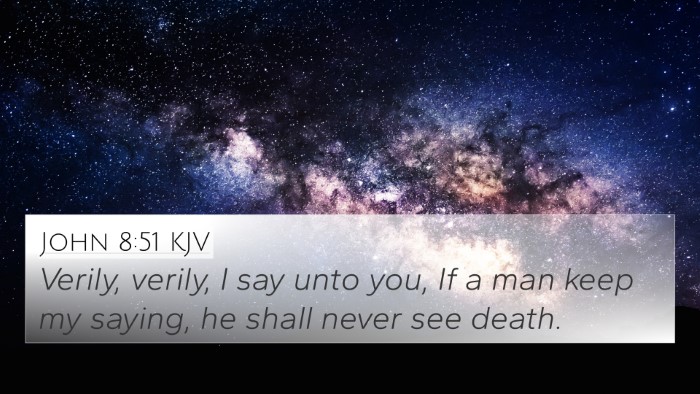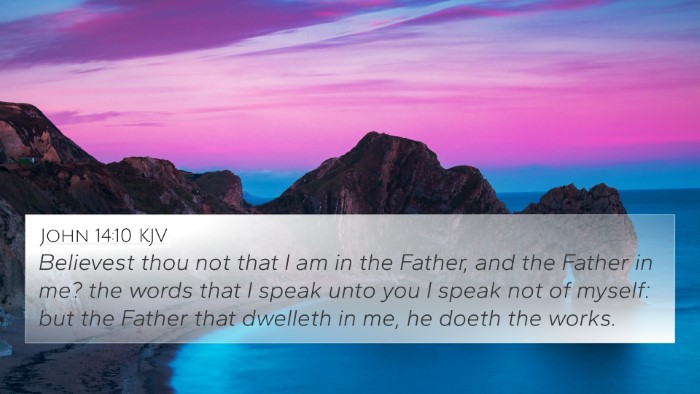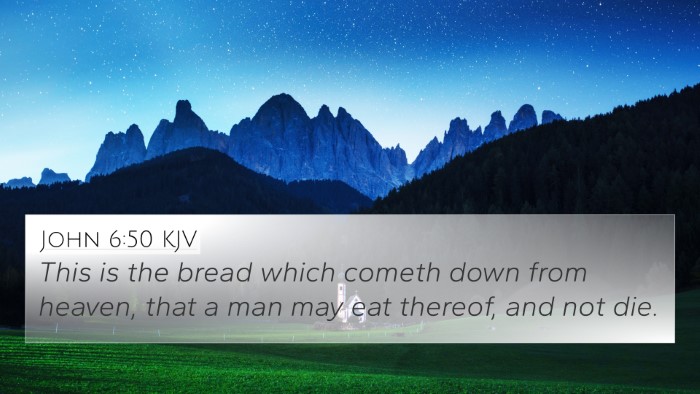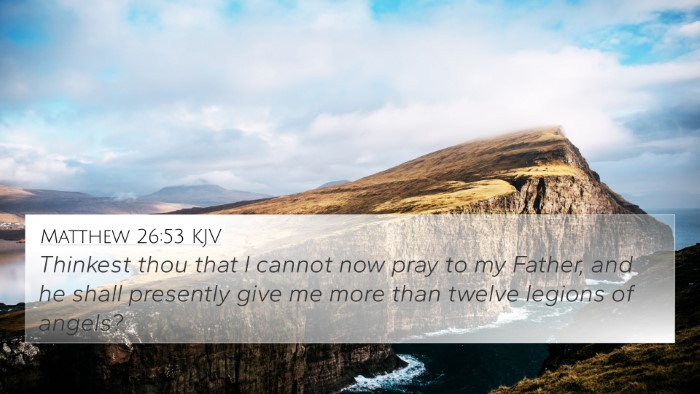Understanding John 11:26
John 11:26 states: "And whosoever liveth and believeth in me shall never die. Believest thou this?" This verse is set within the narrative of the death and resurrection of Lazarus and emphasizes the profound promise Jesus makes regarding eternal life.
Summary of Biblical Meaning
This verse encapsulates core Christian beliefs regarding life, death, and faith in Jesus Christ. Below is an analysis synthesizing insights from public domain commentaries:
-
Matthew Henry:
Henry emphasizes that Jesus uses this moment to demonstrate His authority over death. The promise of eternal life is central to the Christian faith, indicating that faith in Jesus transforms the believer’s relationship with death.
-
Albert Barnes:
Barnes interprets the phrase "shall never die" as a declaration of spiritual immortality. He explains that believers may experience physical death but are assured a spiritual existence beyond. This verse assures followers of Jesus that faith grants eternal life, through a deep connection to Christ.
-
Adam Clarke:
Clarke focuses on the condition of belief set forth by Jesus. He argues that the statement is both a challenge and comfort for believers, inviting them to truly contextualize their faith and the implications of eternal life promised by Jesus.
Bible Cross-References
This verse recalls several important Biblical texts that relate to its themes of life, death, and faith. Here are 10 key cross-references:
- John 3:16: "For God so loved the world, that he gave his only begotten Son, that whosoever believeth in him should not perish, but have everlasting life."
- Romans 6:23: "For the wages of sin is death; but the gift of God is eternal life through Jesus Christ our Lord."
- 1 Corinthians 15:55-57: "O death, where is thy sting? O grave, where is thy victory?"
- Revelation 3:5: "He that overcometh, the same shall be clothed in white raiment; and I will not blot out his name out of the book of life."
- 2 Timothy 1:10: "But is now made manifest by the appearing of our Savior Jesus Christ, who hath abolished death, and hath brought life and immortality to light through the gospel."
- John 5:24: "Verily, verily, I say unto you, He that heareth my word, and believeth on him that sent me, hath everlasting life, and shall not come into condemnation; but is passed from death unto life."
- Philippians 1:21: "For to me to live is Christ, and to die is gain."
- 1 Thessalonians 4:13-14: "But I would not have you to be ignorant, brethren, concerning them which are asleep, that ye sorrow not, even as others which have no hope. For if we believe that Jesus died and rose again, even so them also which sleep in Jesus will God bring with him."
- Hebrews 2:14-15: "Forasmuch then as the children are partakers of flesh and blood, he also himself likewise took part of the same; that through death he might destroy him that had the power of death, that is, the devil; and deliver them who through fear of death were all their lifetime subject to bondage."
- John 6:47: "Verily, verily, I say unto you, He that believeth on me hath everlasting life."
Connecting Themes
The verse and its cross-references highlight several key themes within Christian theology:
- Eternal Life: Central to the promise of Jesus is the idea of eternal life, which implies a continual existence beyond physical death.
- Faith in Christ: The necessity of believing in Jesus as the foundation for receiving the promise of eternal life.
- Victory over Death: A recurring theme in the New Testament that asserts Jesus as the conqueror of death.
- Hope for Believers: Assurance and comfort for believers regarding their afterlife and the resurrection.
Concluding Thoughts
John 11:26 serves as a powerful declaration of faith and hope. It encapsulates the promise that through belief in Christ, believers transcend death, securing eternal life. The connections and cross-references further enrich our understanding and interpretation of this central promise, emphasizing the thematic elements of life, faith, and hope found throughout the scriptures.



